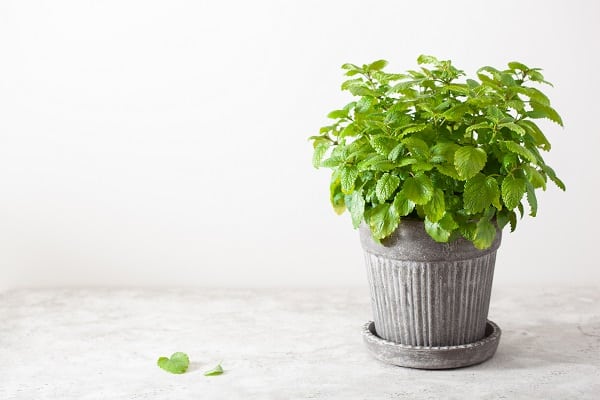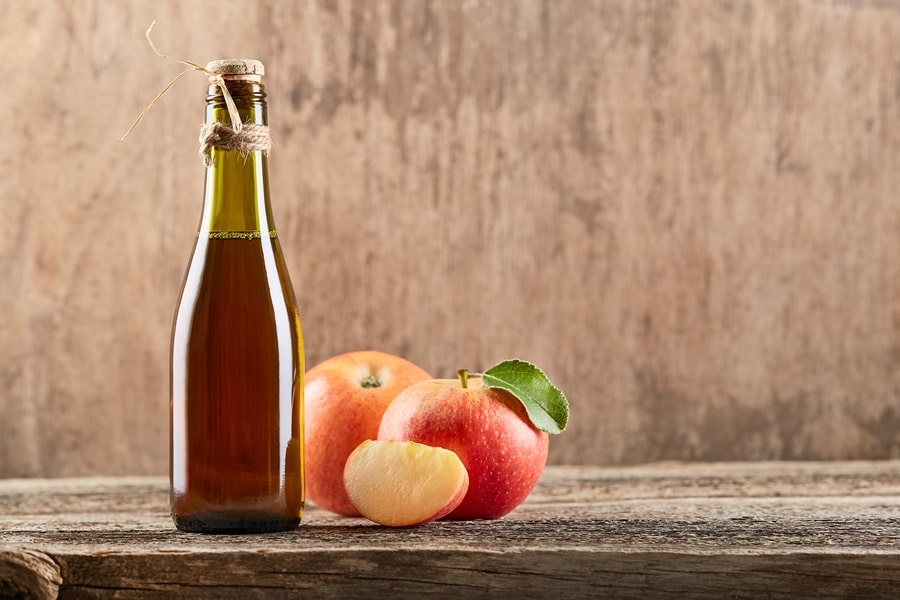Herbs are known for their flavor, scent, and medicinal properties. And there are many different types, each with a unique taste and aroma. And while some herbs are almost strictly used for culinary, some are employed for their medicinal attributes. Plants like ginger, garlic, and dill are all commonly used for cooking, but they also have a number of health benefits. But which ones are the best? Well, that depends on what you want to achieve. This article is here with a list of herbs that promote good health!
Contents
Garlic

As anyone who has ever chopped garlic knows, the pungent aroma of this humble vegetable can linger for hours because garlic contains many sulfur-containing compounds, including allicin. These compounds are released when the garlic is cut or crushed, reacting with the air to create the characteristic odor. In addition to its potent smell, garlic is known for its many health benefits. Allicin, for example, has been shown to have antibacterial and antifungal properties.
Garlic is also a good source of vitamins C and B6, as well as manganese and selenium, which means it can not only ward off germs but also boost your immune system and support healthy brain function. Garlic can be easily added to dishes while cooking or consumed raw with honey for a healthy tonic.
Rosemary

Rosemary is a fragrant evergreen herb native to the Mediterranean. It is used as a culinary seasoning and has many potential health benefits. Rosemary contains antioxidants that may help to protect against cell damage, and it also has anti-inflammatory properties. In addition, you can use rosemary essential oil to improve circulation and mental clarity. When selecting rosemary, look for fresh bunches with vibrant green leaves. Avoid any bunches that appear wilted or yellowed.
Rosemary can be stored in the refrigerator for up to a week, wrapped in a damp paper towel. Fresh rosemary can add flavor to various dishes, from roast chicken to grilled vegetables. It can also be added to soups and stews or used to make a flavorful tea. With its many uses, rosemary is an herb worth keeping on hand.
Cilantro

Cilantro is an annual herb in the mint family. It is native to Iran and India but is now grown worldwide. Cilantro has a strong, distinct flavor that some people love, and others find unpalatable. The herb is often in Asian, Indian, and Latin American cuisine. Cilantro can be used fresh or dried and is also available in oil form. In addition to its culinary uses, cilantro has many health benefits. The herb is a good source of vitamins A, C, and K. It also contains minerals such as iron and manganese.
In addition, cilantro has powerful antioxidant and anti-inflammatory properties. Cilantro also has a unique ability to bind to heavy metals in the body, helping to remove them from the system. Cilantro can be used in salads, soups, and stir-fries for a burst of flavor. It can also be made into tea by steeping fresh or dried cilantro leaves in hot water.
Dill

Dill is a versatile herb used in various dishes, from soups and stews to salads and dips. In addition to its culinary uses, dill also offers many health benefits. Dill contains compounds that have been shown to act as antioxidants, helping to protect cells from damage. These compounds may also play a role in cancer prevention. Dill is also a good source of calcium and magnesium, two minerals that are important for bone health.
Additionally, the oils in dill have antibacterial and antifungal properties. As a result, dill can help to treat various ailments, including colds and indigestion. With so many potential benefits, it’s no wonder that dill has been used for centuries in cooking and medicine.
Oregano

Oregano is more than just a flavorful addition to your favorite Italian dishes. This herb also boasts a variety of health benefits. Oregano oil, for instance, is an effective treatment for respiratory infections. The oils in oregano can also help to reduce inflammation and pain. When applied to the skin, oregano oil can help to fight acne and clear up other skin conditions.
Oregano is also a good source of antioxidants, which can help to protect cells from damage and boost the immune system. Next time you’re cooking with oregano, don’t forget that this herb is good for more than just flavor. It’s also good for your health!
Ginger

Fresh ginger root has a long history of use as a medicine and is still used today to treat various ailments. The health benefits of ginger include reducing inflammation, helping to relieve nausea and vomiting, improving circulation, and soothing gastrointestinal discomfort. Ginger also has antioxidant and antibacterial properties. As a result, it can help to boost the immune system and protect against infection. Fresh ginger root is available year-round in most supermarkets. It can be in cooking or made into tea.
Ginger can also be in supplement form, but it is essential to consult a healthcare professional before using ginger supplements. So don’t underestimate the power of this humble root. For maximum benefit, it is best to consume fresh ginger root daily.
Lemon Balm

Lemon balm is a perennial herb used for centuries to treat various ailments. Today, lemon balm is most commonly taken as a dietary supplement to help relieve anxiety and promote sleep. However, lemon balm may also offer other health benefits. For example, some research suggests that lemon balm can help improve cognitive function and memory and reduce inflammation. Also, lemon balm has shown promise in treating cold sores and other skin conditions.
While more research is needed to confirm these potential benefits, lemon balm is generally safe when taken in moderation. So if you’re looking for a natural way to boost your health, consider adding some lemon balm to your diet.
Sage

Sage has been used medicinally for centuries. Modern science has begun to back up what the ancients knew – sage is a powerful herbal remedy. Used in small doses, sage can help to settle an upset stomach, relieve indigestion and bloating, and ease nausea. Sage also has anti-inflammatory properties, which may explain why it is sometimes used to treat sore throats. In addition, sage has traditionally been a memory booster and cognitive enhancer.
While more research is needed in this area, some studies have shown that sage can improve memory and attention span in healthy adults, which is essential, as age-related memory decline is a common concern. So next time you’re cooking with sage, remember that this herb may also offer some brain-boosting benefits.
Start Reaping The Benefits Of These Herbs Today!
So there you have it – some herbs that can positively impact your health. Remember that herbs should be part of a balanced, healthy lifestyle. Consult with your healthcare professional before using any herbal remedies, particularly if you are pregnant or have any medical conditions. And remember always to buy high-quality herbs from trustworthy sources. Happy herb-ing!


